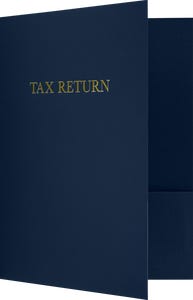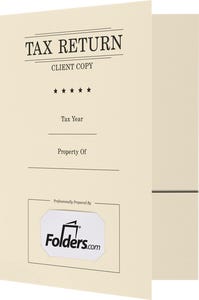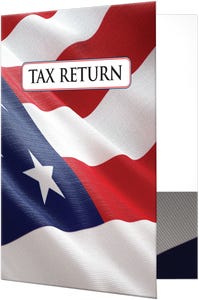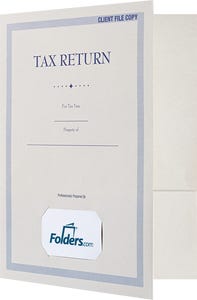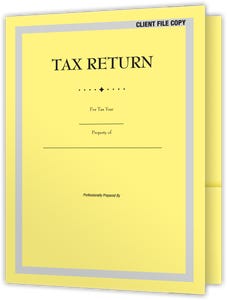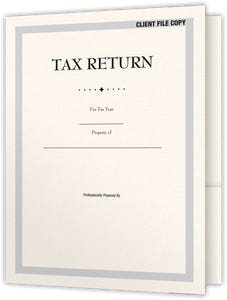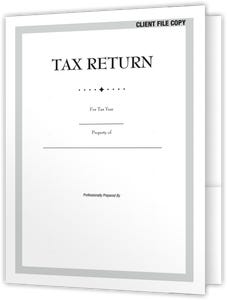Tax Return Folders For Accountants
Tax return folders are essential for accountants to efficiently organize documents and enhance productivity, offering benefits such as structured organization, enhanced security, and customization options.
Tax Return Folders for Accountants
Key Summary:
- This article will explore the importance of tax return folders for accountants in organizing documents efficiently and securely.
- Benefits of using tax return folders and how they aid in organization and efficiency will be discussed.
- Types of tax return folders, real-world use cases, tips for choosing the right folders, and examples of them in action will also be covered.
Benefits of Using Tax Return Folders
Tax return folders offer numerous benefits to accountants. Firstly, they provide a structured system for organizing documents related to tax returns, making it easier to locate specific information when needed. Additionally, these folders help in categorizing different types of documents, such as income statements, receipts, and deductions, ensuring that everything is neatly arranged and easily accessible. By using tax return folders, accountants can save time that would otherwise be spent searching for misplaced documents, allowing them to focus on more critical tasks.
Enhanced Document Security
One significant advantage of using tax return folders is the enhanced security they provide for sensitive financial information. These folders can be designed with features like secure closures and water-resistant materials to protect documents from damage or unauthorized access. Accountants can rest assured that their clients' confidential data is safeguarded within these folders, minimizing the risk of data breaches or loss.
How Tax Return Folders Aid in Organization and Efficiency
Tax return folders play a crucial role in enhancing organization and efficiency for accountants. By having a designated folder for each client or tax return, accountants can maintain a systematic approach to document management. This structured system allows for easy retrieval of information, reducing the time spent on searching for specific documents. Moreover, tax return folders help in maintaining a clutter-free workspace, promoting a more productive work environment for accountants.
Customization Options for Personalized Folders
Another way tax return folders aid in organization is through customization options. Accountants can personalize folders with client names, logos, or color-coding to further streamline document management. Customized folders not only add a professional touch to the accounting process but also make it easier to differentiate between various clients or tax years at a glance.
Types of Tax Return Folders
When it comes to tax return folders, there are various styles and designs available to cater to different preferences and needs. Some folders feature multiple pockets or compartments for organizing documents by category, while others come with built-in labels for easy identification. Accountants can choose from options like expandable folders, binder-style folders, or even digital folders based on their specific requirements.
Different Styles and Designs Available
Accountants can opt for traditional manila folders, sleek leather-bound folders, or eco-friendly recycled paper folders, depending on their aesthetic preferences and environmental considerations. Each style offers unique benefits in terms of durability, aesthetics, and functionality, allowing accountants to select the most suitable option for their practice.
Real-World Use Cases
Examining real-world use cases of accountants utilizing tax return folders effectively can provide valuable insights into their practical benefits. Case studies showcasing how tax return folders have improved document organization, client communication, and overall workflow efficiency can serve as inspiration for other accounting professionals. By learning from successful implementations of tax return folders, accountants can adapt similar strategies to enhance their own document management practices.
Testimonials from Professionals in the Field
Collecting testimonials from experienced professionals who have benefited from using tax return folders can offer firsthand perspectives on their effectiveness. Hearing success stories and feedback from peers in the accounting industry can help accountants understand the tangible impact of incorporating tax return folders into their daily workflow. These testimonials can serve as motivation for accountants looking to optimize their document organization processes.
Who Can Benefit from Tax Return Folders
1. Accountants and tax professionals who handle multiple clients and tax returns regularly.
2. Small business owners who manage their own accounting and tax documentation.
3. Financial advisors and consultants who deal with sensitive financial information.
4. Individuals who want to keep their personal tax documents organized and secure.
5. Organizations looking to streamline their document management processes for tax-related paperwork.
When to Utilize Tax Return Folders
1. During tax season to organize and store all relevant documents for filing tax returns.
2. When preparing financial statements and reports that require supporting documentation.
3. After completing a client meeting to keep track of notes, agreements, and action items.
4. When conducting audits or reviews of financial records to ensure all documents are readily accessible.
5. As part of regular document management practices to maintain an organized filing system.
Scenarios Demonstrating the Value of Tax Return Folders
1. An accountant uses tax return folders to quickly access client information during a tax audit, saving time and reducing stress.
2. A small business owner organizes receipts, invoices, and expense reports in tax return folders, making tax preparation more efficient.
3. A financial advisor showcases personalized tax return folders to clients, demonstrating professionalism and attention to detail.
4. An organization implements digital tax return folders for remote access to financial documents, improving collaboration among team members.
5. An individual keeps personal tax documents in secure tax return folders, ensuring confidentiality and easy retrieval when needed.

